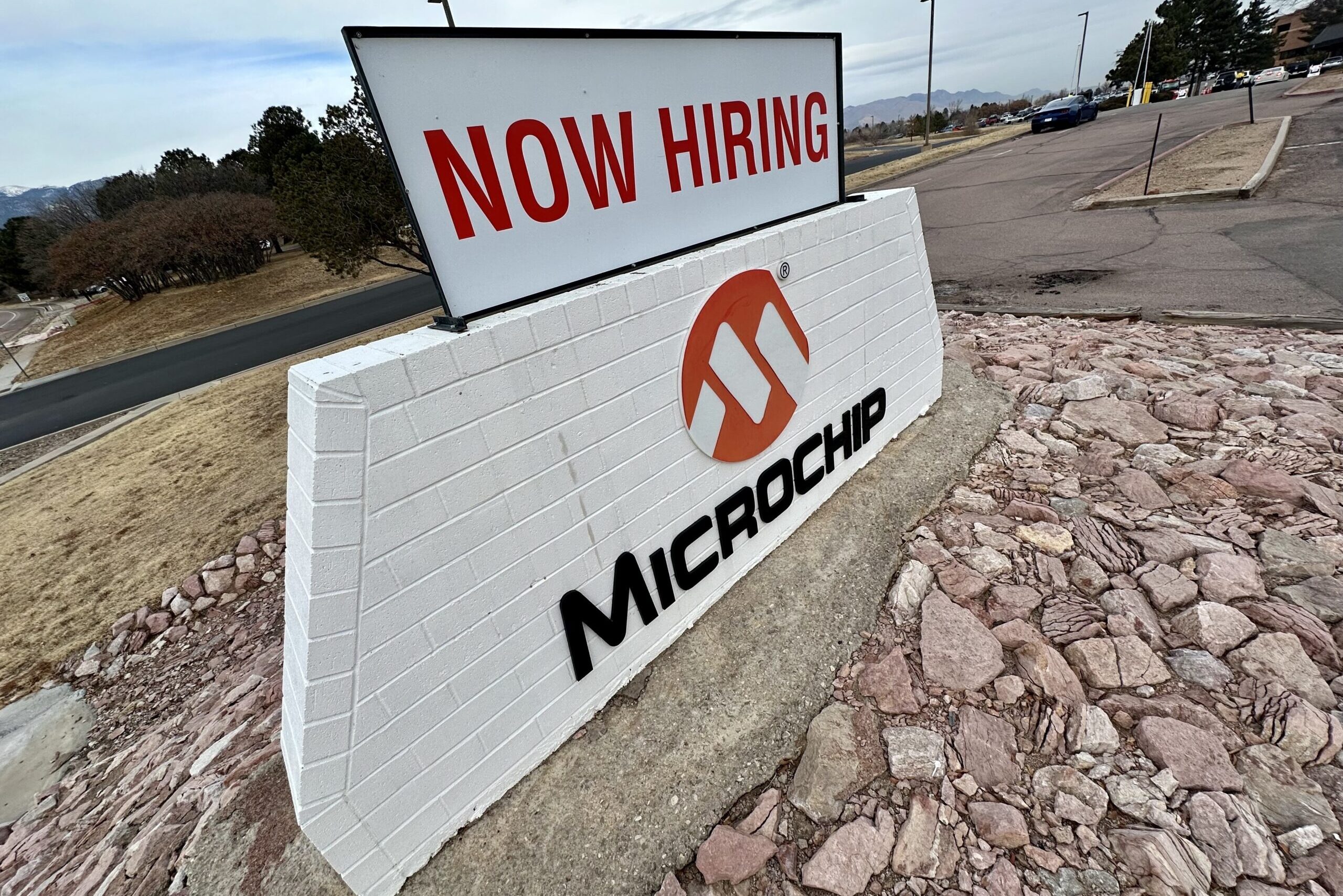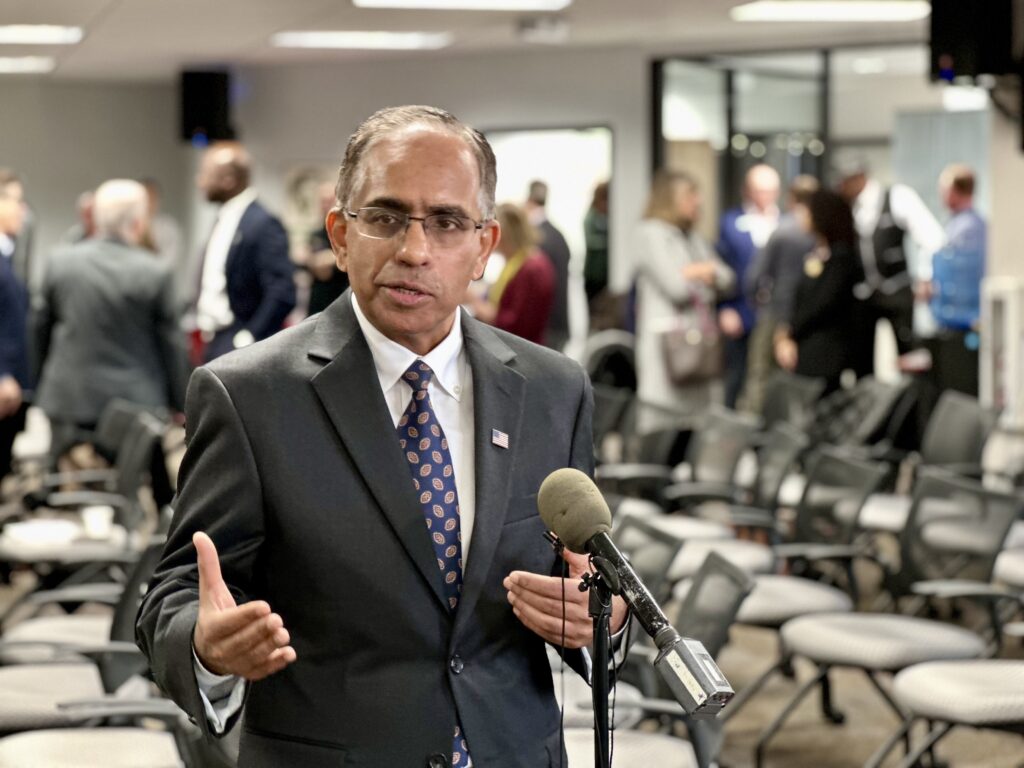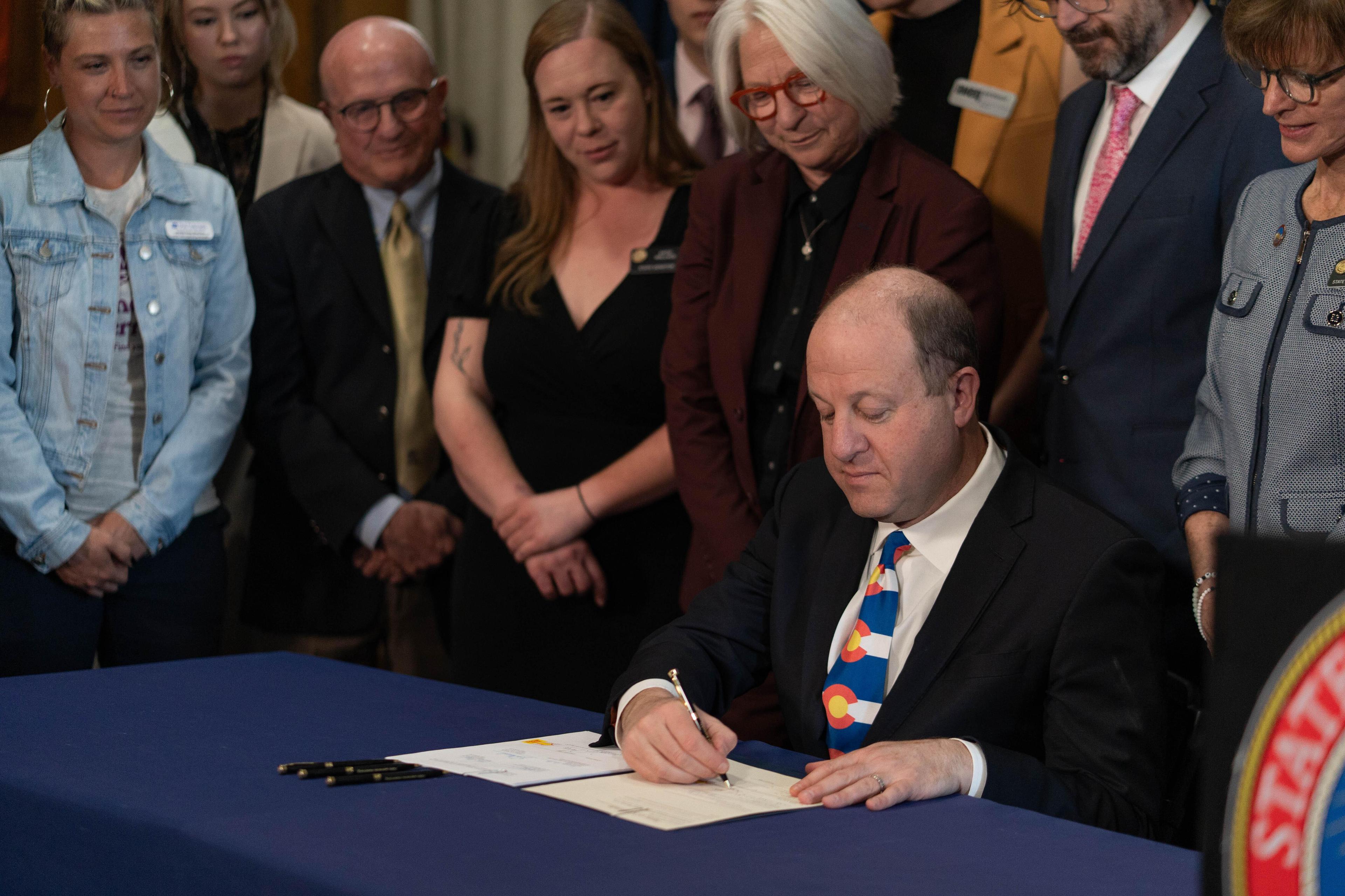
A semiconductor manufacturer with facilities in Colorado and Oregon expects to triple its domestic production of computer chips as part of $162 million worth of federal grants announced Thursday.
The $90 million in Colorado funds allocated to the company Microchip marks the single largest investment thus far from the CHIPS and Science Act passed by Congress in 2022. Microchip said the money is also expected to add more than 700 jobs that will be split evenly between the two locations.
It’s part of a Biden administration plan to support the domestic production of critical computer chips. Over-reliance on foreign-sourced semiconductors has been seen as a national security concern and led to mass shortages during the COVID-19 pandemic.
“Everything that we live with today comes back to these chips,” said Democratic Sen. John Hickenlooper during an event hailing the grant at the Colorado Springs facility. “Making sure that we can onshore them…moves us forward in what is continuing to be a global competition.”
The U.S. Commerce Department is splitting the total $162 million in CHIPS Act funds between Microchip locations in Colorado Springs and in Gresham, Oregon. That money feeds into a broad modernization project the company announced nearly a year ago to boost its production of specialty semiconductors such as microcontrollers and silicon carbide chips, the latter important for electric cars and other decarbonization efforts.
Laurie Locascio, U.S. Commerce Undersecretary for Standards and Technology, said the U.S. not only invented the semiconductor but used to manufacture 40 percent of the world’s supply. Today, that has dropped to 12 percent. And none of those are what she called the “leading edge chips” powering important technological advancements.
“With the modernization of both facilities, Microchip would be able to triple the share of semiconductors the company produces domestically, decreasing its reliance on foreign foundries and strengthening supply chain resilience,” Locascio said.
GOP Representative Doug Lamborn, who did not vote for the CHIPS Act, cheered the funding as a particular win for national security. He mentioned the semiconductors produced will end up in military tech from precision missile platforms to modern radar and the latest autonomous systems.
“I absolutely agree with the goals of the CHIPS Act,” Lamborn said. “I just happen to believe that private funding works better than government funding. However, now that the act has taken effect and has become law, let’s make the most of it.”
It will likely still take several months for the $162 million in grant funds to reach Microchip. What was announced Thursday was a non-binding preliminary memorandum of terms, contingent on Microchip passing inspections and environmental review.
The full multi-year modernization of the Springs facility is expected to cost about $940 million, according to Microchip President and CEO Ganesh Moorthy. On top of the CHIPS Act funds, the project also received about $47 million in state and local tax incentives.

“We’re in every single car, we’re in all of the home appliances, we’re in many many (pieces of) medical equipment,” Moorthy said. “You don’t go through a day in your life without about 200 to 300 of our products in some way, shape or form having touched you in ways you don’t recognize.”
The expansion at Microchip adds to a growing list of tech and aerospace wins for the Pikes Peak region. Solar company Meyer Burger, defense contractor Boecore, and electronic materials manufacturer Entegris each announced hundreds of additional local job openings in the last 18 months.
Additionally, the Biden Administration announced in July that nearby Peterson Space Force Base would retain the headquarters of the U.S. Space Command.
“I can get used to this,” Colorado Springs Mayor Yemi Mobolade told the gathered crowd.








